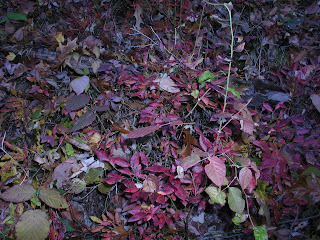Recently, Mike McDowell posted a sort of "alternate view" and different response to the recent "Mango mania" in Beloit. See it
here, and see responses and other commentary on Laura Erickson's blog
here.
Mike has sort of "invited me into" this discussion. He and I have been discussing this for quite a while. There seems to be a rather deep misunderstanding about what Mike has suggested; I say this based on reading comments here and there, including on Laura Erickson's blog, the Wisconsin birdnet, and elswhere. If it's true that some folks feel they are being asked to spend "all of their money" on conservation, I have a few reminders to offer, plus a few facts to set straight. This is not meant as an attack on anyone or on the actions of anyone - just as a set of points for discussion.
1) I can't really speak for Mike, but I'm fairly certain he's not suggesting that anyone should "spend all their money" on conservation. Let's get real.
2) Unless all of us (not just the few who are doing it now) start seriously changing our behavior, we will have a lot fewer birds to watch in 20-40 years - I guarantee it.
3) Along with habitat loss and alteration,
the effects of climate change pose a greater threat to birds in the coming century than any previous threat in the history of the planet.4) If we make the comparison as follows (please bear with me), you'll see where I'm headed:
Let's say you saw someone being beaten up in an alley. You could certainly walk away, with no harm to yourself. Is that a moral response, though? Do we share responsibility for each other's welfare? I would not suggest that you pick up a baseball bat and attempt to beat off the attackers - that would be foolhardy. But to me, a correct response would be
to do something to help (call the police, for example). Our actions as consumers and users of natural resources are really like the actions of the bullies, only we are almost totally unaware of the effects of our actions in this case - we don't even know we are doing the bullying. Nearly everything we do has a moral component, but because we are often so far removed from the effects, we are ignorant of many of those moral aspects. Our profligate and wasteful use of fossil fuels are causing extreme climatic effects in the arctic, in the tropics, on low-lying oceanic islands, and elsewhere. Not only birds, other wildlife, and plants are being harmed, but humans, especially people living at the economic margins of many societies, are at great risk. The arctic birds we are thrilled to see in winter are at great risk. And we share responsibility for their welfare, their future - like that person being beaten in the alley. If we do nothing, our responsibility grows in proportion to the severity of the threat.
You can debate this if you like. But I'm pretty sure that if you look inside your heart, you'll see the truth in what I'm asserting here. I welcome your comments, and any ensuing discussion. As I mentioned in an e-mail to Laura about this a few days ago, it's important to support and defend a diversity of views. But I stand steadfastly with Mike on this one - I am hoping his view, and what it represents, grows in acceptance by many more people. I aim to help make that happen, in any way I can.






